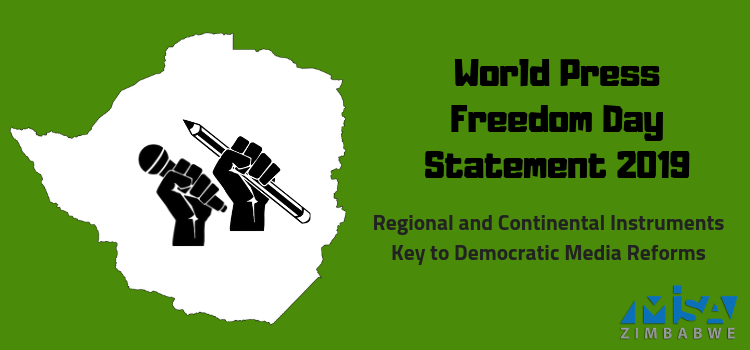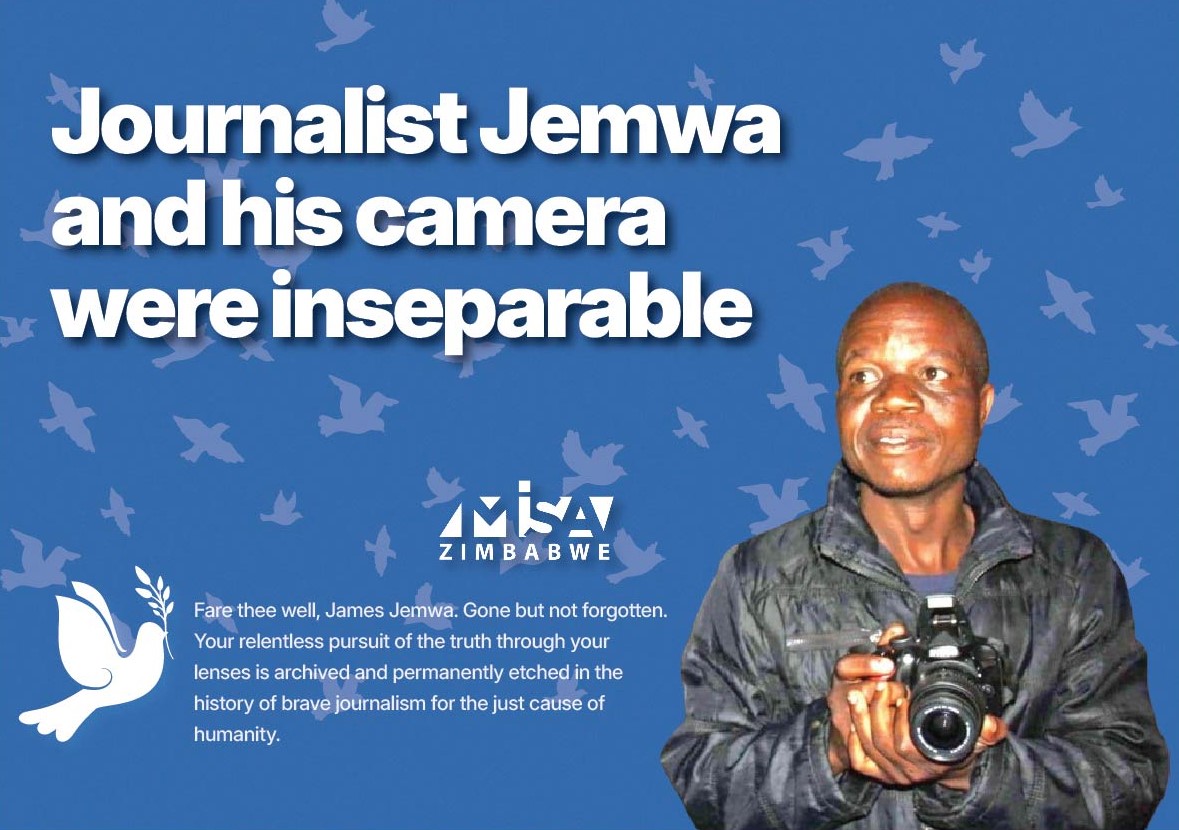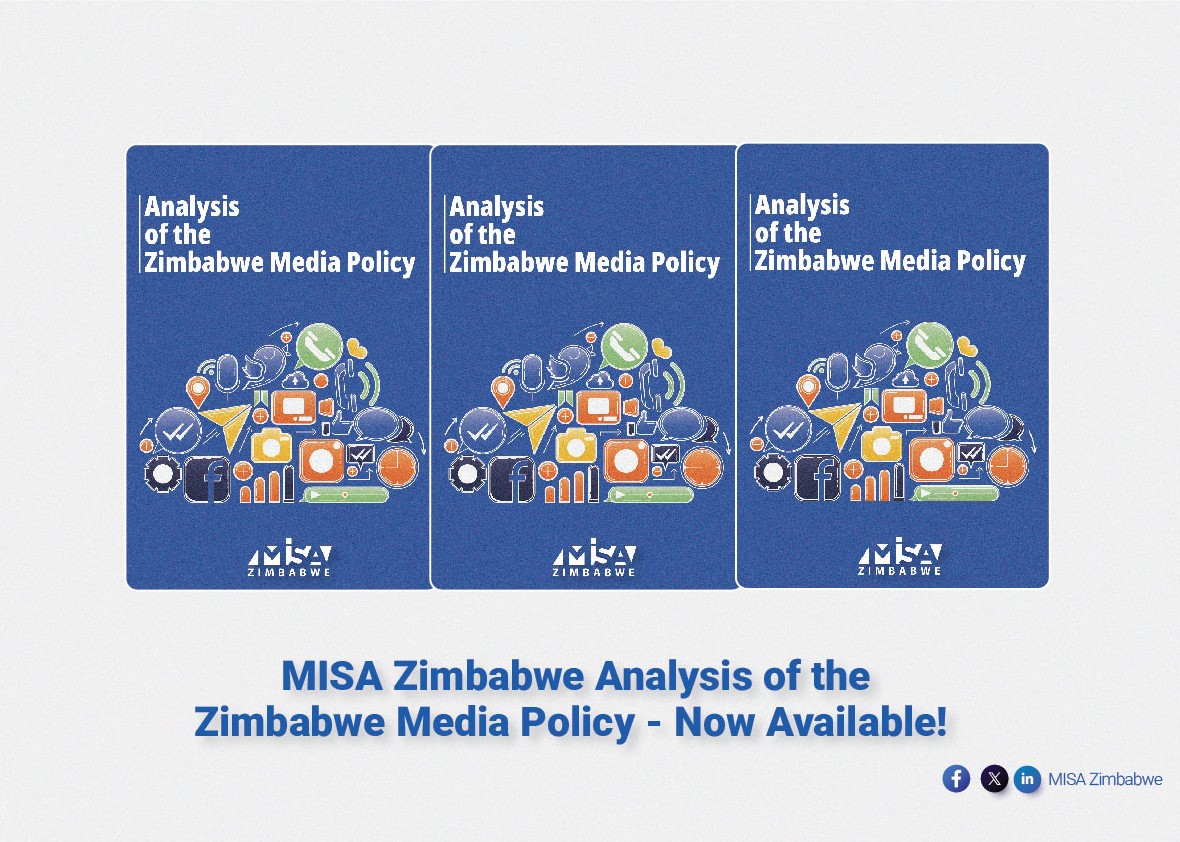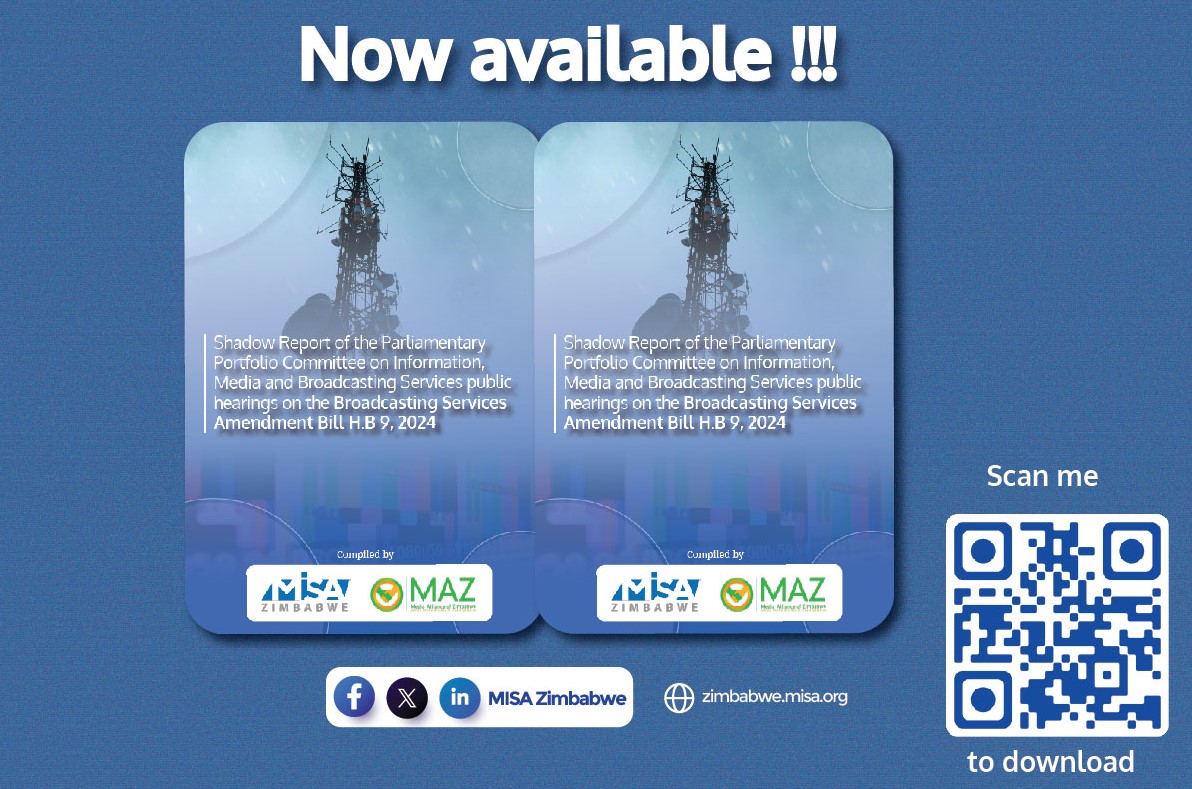As the world commemorates World Press Freedom Day this year on 3 May, MISA Zimbabwe urges the Zimbabwean government to comply with regional and continental instruments as the sine qua non to the ongoing media law reform processes.
Compliance with these instruments as derived and underpinned by the African Charter on Human and Peoples Rights (ACHPR) and in sync with the country’s Constitution, is critical to the enactment and domestication of democratic media, free expression and access to information laws.
Zimbabwe is a state party to the ACHPR and should therefore adhere and be guided by Article 1 of the Charter. Article 1 mandates member states to recognise the rights, duties and freedoms enshrined therein by implementing legislative measures to give effect to them.
Our theme for this year’s World Press Freedom Day commemorations: Regional and Continental Instruments Key to Democratic Media Reforms, thus comes on the backdrop of the ongoing media reform processes.
The regional and continental instruments include, among others:
- African Charter on Human and Peoples Rights
- Windhoek Declaration
- Declaration on the Principles of Freedom of Expression and Access to Information in Africa
- African Charter on Broadcasting
- African Platform on Access to Information
- African Commission on Human and Peoples Rights Model Law on Access to Information in Africa
- African Declaration on Internet Rights and Freedoms
- African Charter on Democracy Elections and Governance
These instruments should be read and applied in line with Zimbabwe’s Bill of Rights and fundamentally, with Sections 57, 61 and 62 of the Constitution and other relevant sections that have a bearing on the exercise and enjoyment of free speech, right to privacy and access to information.
In that regard, MISA Zimbabwe cautiously welcomes steps taken by the government so far through the three draft Bills as part of its commitment and pledges to implement the long-overdue media law and policy reforms. However, the envisaged reforms should not be piecemeal, hurried and nebulous, but extensive and underpinned by democratic values and best practices.
The process cannot end with the repealing of the Access to Information and Protection of Privacy Act (through the Freedom of Information Bill), Broadcasting Services Amendment Bill, Zimbabwe Media Commission Bill and Data Protection Bill. There exists a range of other laws whose provisions infringe on free expression, media freedom and access to information.
These laws, among others, include the Criminal Law (Codification and Reform) Act, Interception of Communications Act, Official Secrets Act and Censorship and Entertainment Controls Act.
The obtaining situation demands wide consultations and active citizen participation, more so when the relevant Bills are subjected to public hearings and scrutiny. On the other hand, Parliament should fulfil its oversight role with a sense of greater national responsibility. Parliamentarians should, therefore, be well versed and knowledgeable on the importance of the relevant regional and international instruments and constitutional provisions in entrenching democracy.
In that regard, a free media is critical in the context of its watchdog role through rigorous monitoring, tracking and dissemination of information on compliance and progress pertaining to the reform process.
The government should thus secure an environment conducive to free and unhindered professional journalism and citizens’ right to free expression both offline and online.
Media freedom and freedom of expression violations should be condemned and actions taken against the perpetrators in line with the United Nations Declaration on Journalism Safety and Impunity. In saying this we are mindful of the universal WPFD 2019 theme: Journalism and Elections in Times of Disinformation.
MISA Zimbabwe is of the firm view that the government and the nation at large should seize the opportunity of the media reform process to entrench democracy as Zimbabwe strives to regain its pride of place among the community of other democratic nations.
Compliance and adherence with regional and international instruments and the country’s own Constitution is therefore of imperative importance.
Anything short of that will be a detrimental indictment on President Emmerson Mnangagwa’s pledge to entrench the pillars of democracy and yet another missed opportunity for a country itching to regain international goodwill and investments to kick-start its perennially ailing economy.
Golden Maunganidze
MISA Zimbabwe Chairperson
End













